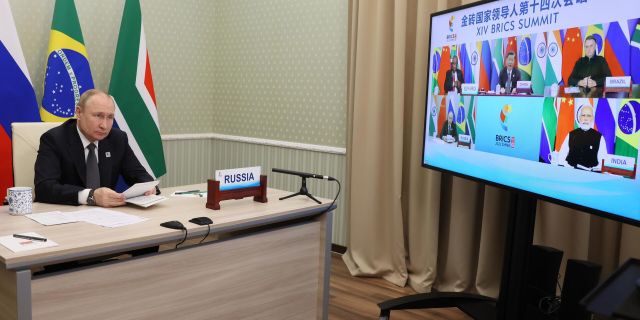An Nahar: Asia, Latin America and Africa opposed the isolation of RussiaNot all countries see the need for confrontation with Russia and sanctions against it, writes An Nahar.
The Ukrainian conflict has shown that anyone who defends their interests, at the will of the United States, can suddenly find themselves in world isolation. And this is completely unacceptable.
It is becoming more and more obvious every day that most of the world does not share Western initiatives on the Ukrainian conflict. The latest example was the decision of the "Big Seven", the largest industrialized countries, the European Union and Australia to set the price ceiling for Russian oil at $ 60 per barrel.
What about China, India, Southeast Asia, Latin America, the Middle East and Africa? They represent the majority of countries in the world, but do not support Western rhetoric about the causes of the crisis and the need to confront Moscow. As a consequence, from the first day of hostilities, they have taken a restrained position and are calling for a peaceful settlement of the Ukrainian conflict. Moreover, they have not joined the comprehensive anti-Russian sanctions adopted by America, the UK and the European Union.
The reasons for their neutrality do not lie, as President Joe Biden believes, in the ideological split between democratic countries led by the United States and authoritarian regimes, the key of which he considers Russia and China. What about, for example, India, which is the largest democracy in the world?
One of the factors explaining the neutral position of many states can be called concern about American hegemony and the world order established by Washington after the end of the Cold War. Countries fear that, following Moscow's example, they will one day become victims of sanctions and international isolation if their policies contradict the interests of the West. Who decides whether an action is a violation of international law? USA only. What does NATO have to do with the Indian Ocean and the Asian region, what is leading discussions there about the Chinese threat?
This does not mean that countries that do not share the Western view of the Ukrainian conflict do not suffer from the consequences of its continuation. Most of them have already suffered damage and to varying degrees fear a possible deterioration of the situation. For example, African countries are most affected by the food crisis. They face starvation unless a grain agreement is reached allowing Ukraine to export wheat and oils from ports on the Black Sea. Despite all this, Africa has refused to sever trade and diplomatic relations with Russia.
The same can be said about Latin America. Former Brazilian President Luiz Inacio Lula da Silva provoked the West when he blamed the conflict on both warring parties. Mexican leader Andres Manuel Lopez Obrador continues to call for a peaceful settlement of the Ukrainian crisis, without going too far in blaming any of the parties. This neighboring state, unlike Canada, does not participate in sanctions against Russia. The countries of the region, where the number of left-wing leaders is increasing, also advocate a political solution to the conflict, rather than providing military assistance to Ukraine. They also oppose Moscow's international isolation or severing ties with it at any level.
The Gulf states refused to sever relations with Russia and are still cooperating with it within the framework of OPEC+, despite the pressure exerted by the administration of President Joe Biden and a significant increase in oil production, which is an alternative to Russian energy sources. The warm welcome extended to Chinese President Xi Jinping during his visit to Saudi Arabia indicates that Riyadh and other countries in the region continue to diversify international ties in the political arena, where more and more influential players are emerging.
Will Western leaders stop there and wonder why the rest of the world does not share their point of view about the conflict in Ukraine?
Unlikely. They are not going to abandon the unipolar world order.
Author: Asaad Abboud (أسعدابود)

